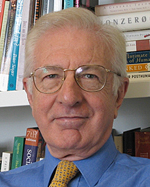by Stephen Machin
As Director of the Centre for Economic Performance (CEP) at LSE, I am delighted that the Centre has been named as one of the two inaugural ESRC Research Institutes. This is testament to the achievements of the Centre, and its significant impact on a wide range of policy over the years.
Whilst the Centre’s mission has always been to study economic performance and its determinants, it has never been a ‘single issue’ centre. CEP has continually evolved to ensure that research attention is placed on key contemporary economic questions. Continue reading
 Giulia Giupponi is an ESRC-funded PhD student at the London School of Economics and a research assistant at the Centre for Economic Performance.
Giulia Giupponi is an ESRC-funded PhD student at the London School of Economics and a research assistant at the Centre for Economic Performance. Stephen Machin is Professor of Economics at the London School of Economics and Director of the Centre for Economic Performance.
Stephen Machin is Professor of Economics at the London School of Economics and Director of the Centre for Economic Performance.
